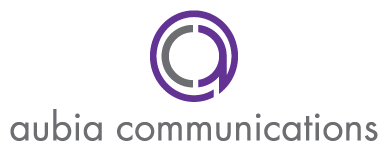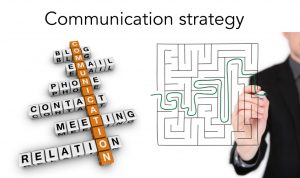 Joe is the Public Relations director for an underprivileged youth non-profit organization, Youth Winners. He normally arrives at the office around 7:30 a.m. where he first scans his Google Alerts for any news on Youth Winners. He’s happy to see the latest fundraising event, a silent auction held last week to raise money for computers for a homework assistance center, is receiving some favorable coverage in a variety of media outlets. However, he also comes across a community board where some of the respondents accuse Youth Winners of pocketing funds instead of using them for the computers. Much to his dismay, he also sees a local reporter that covers the non-profit sector is asking some of the respondents to get in touch with further information. When Joe opens his email, there is a message waiting for him from the reporter asking for a comment about the accusations.
Joe is the Public Relations director for an underprivileged youth non-profit organization, Youth Winners. He normally arrives at the office around 7:30 a.m. where he first scans his Google Alerts for any news on Youth Winners. He’s happy to see the latest fundraising event, a silent auction held last week to raise money for computers for a homework assistance center, is receiving some favorable coverage in a variety of media outlets. However, he also comes across a community board where some of the respondents accuse Youth Winners of pocketing funds instead of using them for the computers. Much to his dismay, he also sees a local reporter that covers the non-profit sector is asking some of the respondents to get in touch with further information. When Joe opens his email, there is a message waiting for him from the reporter asking for a comment about the accusations.
This scenario is a nightmare come true for any organization, and many have been there. When not handled correctly, crises can have a devastating effect on your organization. After the 2010 Deepwater Horizon Oil Spill, BP reported its first loss in profits in 19 years.
Types of Crises
It’s imperative to have a crisis communications plan in place, but as the old saying goes “an ounce of prevention is better than a pound of cure.” To understand how to prevent crises, we first need to distinguish between the three main types:
1) Immediate
Natural disasters and other type emergencies, these crises can’t be predicted. You can have plans in place to handle them, but you won’t be able to prevent them. The 2011 tornado that destroyed much of Joplin, Mo., is such an example.
These events can be anticipated and, therefore, prevented. For example, if Goldman Sachs had been more aware of its company’s climate and employees’ attitudes, the damaging New York Times op-ed by an executive could have been prevented.
3) Sustained
The most dangerous of all, sustained crises can linger on and continually drain the organization of its reputational assets. Even though major financial institutions, such as J.P. Morgan Chase & Co. and Citibank, are beginning to show signs of recovery from the 2008 financial crisis, their reputations have taken major blows.
How to tell when a crisis is looming
Now that we understand how crises can differ, let’s take a look at Joe’s particular situation. He has an emerging crisis on his hands, and, if handled correctly, can be contained in the early stages. However, Joe and the organization would have very much liked for the focus of the fundraiser to stay on the positive instead of the negative. So, what could Joe and Youth Winners done to prevent the accusations of money laundering?
1) Talk the talk, walk the walk
The best way to prevent a crisis is to not have any unethical behavior going on in the first place. Ensure you and your employees have a set of values to live by. Publish these values so everyone has access to them, and make it a habit to discuss them. Review these values yearly, and make any adjustments or additions as needed.
2) Monitor the office space
Once these values are in place and everyone has had the chance to learn them, make sure they’re actually being used. Organizations that just pay lip service to a code of ethics will be exposed. Correct any disconnects between action and ideal and hold those accountable who intentionally violate these standards.
3) Monitor the online space
People will always talk about you. Listen. Watch your social media sites; Google your name and keywords you would be found by; and observe industry blogs and message boards. Correct misinformation where you can by identifying your association with the organization, and interact online with those who may be sharing a misguided idea about you or your organization. Be honest and transparent while you supply factual information about the topic.
4) Survey your clients
You should be having continuous conversations with your clients on how your service is and what could make it better, but at least once a year survey your clients for any potential problems that can lead to a crisis situation. You can send out a customer satisfaction survey, but meeting face-to-face is even better. Public companies have annual shareholder meetings, but even for private organizations, hosting a small, intimate event to really hear from your clients is all you may need to stay crisis free.
External publics aren’t the only ones who may be misinformed and leading your organization down the path to a crisis. Employees many times are the first to go but the last to know. Listen to what is being said not only in staff meetings but at the water cooler, at the local lunch spot, and the after-work hangout spot. Again, correct information where you can, but listen for complaints, too. Insight into potential problems can be found in these conversations along with possible solutions, helping you to rectify a situation before it even has the chance to elevate to a crisis level.
Even though crises can be opportunities for organizations to strengthen their reputations, preventing a crisis can be just as powerful. If Youth Winners is aligned with a transparent principle of showing how funds were spent, then Joe can respond to the online accusations and reporter with factual information about where the money is going. Before even that, though, if Youth Winners and Joe had an ear to the ground, maybe they could have presented this information up front before these accusations were even hurled online. What do you think Joe could have done to prevent such a crisis?
photo credit: krisis magazine via photopin cc
photo credit: Leonard John Matthews via photopin cc
photo credit: UWW ResNet via photopin cc





